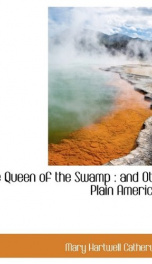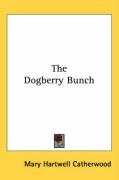The Cobbler In The Devil's Kitchen

Early in the Mackinac summer Owen Cunning took his shoemaker's bench and all his belongings to that open cavern on the beach called the Devil's Kitchen, which was said to derive its name from former practices of the Indians. They roasted prisoners there. The inner rock retained old smoke-stains.Though appearing a mere hole in the cliff to passing canoe-men, the Devil's Kitchen was really as large as a small cabin, rising at least seven feet from a floor which sloped down towards the water. Overhead, through an opening which admitted his body, Owen could reach a natural attic, just large enough for his bed if he contented himself with blankets. And an Irishman prided himself on being tough as any Frenchvoyageur who slept blanketed on snow in the winter wilderness.The rock was full of pockets, enclosing pebbles and fragments. By knocking out the contents of these, Owen made cupboards for his food. As for clothes, what Mackinac-Islander of the working-class, in those days of the Fur Company's prosperity, needed more than he had on? When his clothes wore out, Owen could go to the traders' and buy more. He washedhis other shirt in the lake at his feet, and hung it on the cedars to dry by his door. Warm evenings, when the sun had soaked itself in limpid ripples until its crimson spread through them afar, Owen stripped himself and went bathing, with strong snorts of enjoyment as he rose from his plunge. The narrow lake rim was littered with fragments which had once filled the cavern. Two large pieces afforded him a table and a seat for his visitors.Owen had a choice of water for his drinking. Not thirty feet away on his right a spring burst from the cliff and gushed through its little pool down the beach. It was cold and delicious......
Info about the book
Author:
Series:
Unknown
ASIN:
B0082XVQI2
Rating:
3.5/5 (2)Your rating:
0/5
Languge:
English
Users who have this book
Users who want this book
What readers are saying
What do you think? Write your own comment on this book!
write a commentif you like The Cobbler In The Devil's Kitchen try:
Other books by this author
Do you want to exchange books? It’s EASY!
Get registered and find other users who want to give their favourite books to good hands!










